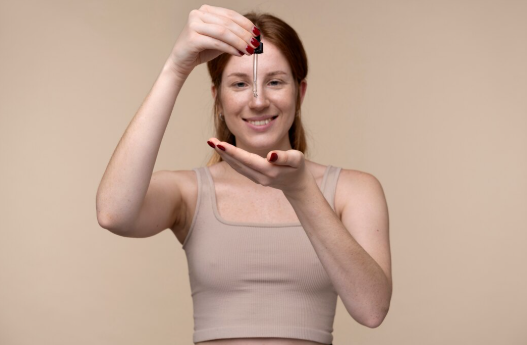
- Ana Sayfa
- Diyetisyen
- Vitamin C And Its Effect On Skin Health
Vitamin C, which is one of the water-soluble vitamins, has a very important place in the protection of our health. Another effect is to protect our skin health. It cannot be produced or stored in our body. Therefore, it must be taken daily.
Functions of Vitamin C
Although it is mostly known for its immune system strengthening effect and protective effect from diseases such as colds, its benefits are many. It is effective in protecting the connective tissue in the body, such as blood vessels, bones and skin. Vitamin C is also a very powerful antioxidant. Therefore, it is protective against cancer and heart diseases. Taking it with iron-containing foods increases the absorption of iron. And vitamin C is effective in skin health. Vitamin C adds shine to the skin, helps relieve skin dryness and reduce signs of aging.
The mechanism of action of vitamin C on skin health
Supporting collagen formation, reducing UV-induced damage with its antioxidant effect. In some studies, when foods containing significant amounts of vitamin C are added to the diet; skin elasticity, wrinkle and color has been shown to contribute to recovery. In addition, adequate vitamin C intake skin barrier by reducing the accumulation of toxic substances in the liver It also provides protection against skin diseases by preserving its function.
What are the symptoms of Vitamin C deficiency?
Fatigue, decreased appetite, muscle weakness, swelling in the joints, fever, bleeding gums, shortness of breath and scurvy can be seen.
Smoking increases the need for vitamin C.
sources of vitamin c
Fruits and vegetables are good sources of vitamin C. Examples of foods containing vitamin C are; red and green pepper, kiwi, broccoli and orange. Adding these foods to your diet is a good step to meet your vitamin C needs. Vitamin C contents are given along with serving sizes:
Paprika, sweet, raw, ½ cup 95 mg
Orange 1 medium 70 mg
Grapefruit juice, ¾ cup 70 mg
Kiwi, 1 medium 64 mg
Broccoli, cooked, ½ cup 51 mg
Brussels sprouts, cooked, ½ cup 48 mg
Broccoli, raw, ½ cup 39 mg
Orange juice, ¾ cup 93 mg
Strawberries, fresh, sliced, 1 cup 90 mg
Green pepper, sweet, raw, 1 cup 120 mg
Tomato juice, ¾ cup 33 mg
Melon, ½ cup 29 mg
Tomato, raw, 1 medium 17 mg
Spinach, cooked, ½ cup 9 mg
The vitamin C content of foods decreases with long-term storage and cooking because vitamin C dissolves in water and is destroyed by heat. The best sources of vitamin C are uncooked or raw fruits and vegetables.
Bu makalenin DoktorTakvimi web sitesinde yayımlanması, yazarın açık izniyle yapılmaktadır. Web sitesindeki tüm içerikler, fikri ve sınai mülkiyet mevzuatı kapsamında uygun şekilde korunmaktadır.
DocPlanner Teknoloji A.Ş. web sitesi tıbbi tavsiye sunmaz. Bu sayfanın içeriği, metinler, grafikler, görseller ve diğer materyaller de dahil olmak üzere, yalnızca bilgilendirme amacıyla oluşturulmuştur ve tıbbi tavsiye, teşhis veya tedavinin yerini almak amacı taşımaz. Herhangi bir sağlık sorununuzla ilgili şüpheniz varsa, bir uzmana danışınız.



